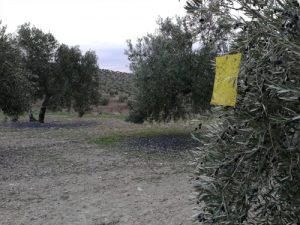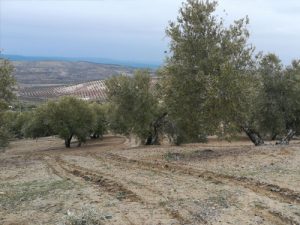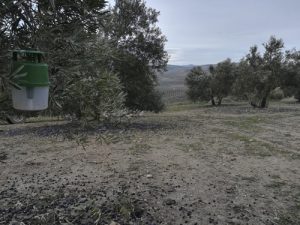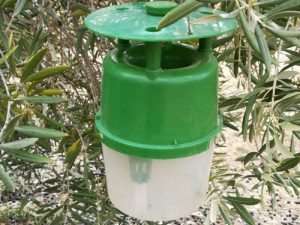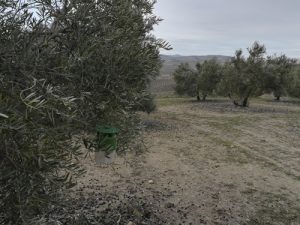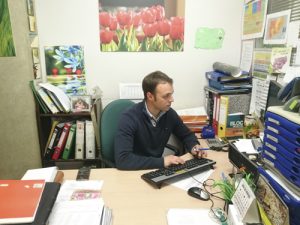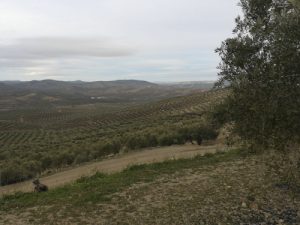An integrated production group (API) refers to a consortium of farmers who hire a technician to provide advice with respect to controlling crop pests and diseases. This is a requirement since 2014, with the introduction of the “Sus- tainable use of phytosanitary products” regulation.
Area: 3.700 ha
All members of the API have to comply with regulations. The compliance with the regulation is undertaken collec- tively rather than individually in order to reduce costs. One farmer outlined the cost benefits of participating in the API: ‘’If it were done individually, I would have to hire a technician to manage the field notebook, which is ultimately the practical part of that regulation, and it would be much more expensive. Thanks to the RAIF you know the status of pests and diseases in an updated way.’’ At certain locations on the farm (equidistant apart) there is a sampling station for pests and diseases which could affect the olive grove. These stations are sampled weekly and the data is passed onto the RAIF. Samples are taken from Monday to Wednesday and on Friday they are published on the web- site, thereby enabling all farmers to access this information.
On January 1, 2014, the “sustainable use of phytosanitary products” regulation came into effect. This regulation indicates that all farmers who engage in the cultivation of tillage crops, in this case olive groves, must have a technical advisor to manage their cultivation with respect to pest control and use of phytosanitary products. With this API, these regulations are complied with. This technical advisor has to have adequate qualifications and com- petencies in the subject area (Agricultural Engineer, Agricultural Engineer, Bachelor of Environmental Sciences) and also specific training provided by the Junta de Andalucía related to integrated production. Specifically, two courses, a generic one-week integrated production course and a specific 40-hour course. Any university degree is capable of doing these tasks, following a protocol of quality certification. Belonging to the API means that the quality of olive production is certified. The problem is that what is certified is the production of olives and what is sold in the marketplace is oil. The production of oil does not have the quality certification, since not all farmers who carry their 
olives comply with the integrated production regulations. Oil of different qualities is mixed and that is why the oil cannot have the seal of certified quality, because the integrated production regulations are not fulfilled within all stages of the production process. Each farmer takes the oil to his own cooperative or to a private oil mill or a buying station, and some comply with the regulations whilst others do not. In order to carry out the complete process in Jaén, it would be necessary for the oil mills to get involved more in the certification process and to improve the overall quality. In Jaén there is little certified oil being certified through an integrated production process and, on the other hand, in other nearby provinces, such as Córdoba and Seville, it is more commonplace. This form of cooperation has advantages such as the economic benefit and the technical advice of the API, which translates into a reduction of costs. On the contrary, negative aspects also appear, such as bureaucracy.
Advice/Recommendation
"Agriculture is a living science, every day you learn something new about it. Both technicians and farmers have to keep training. API technicians offer farmers at least one training day and it is advisable to do a practice as well.
Regarding the level of involvement of farmers, those who are more professional do care more about the subject, but those who have the olive grove as a source of secondary income or it is not their main activity, it is more complicated. You have to be on top of them to get the documentation and do things right."
Queries/Questions
- Do you think a mobile app would be useful in order to carry out better monitoring and control (by technicians) of phytosanitary treatments?
- Do you consider that farmers belonging to an API should receive specific training in this regard?
- Do you think that it should be a requirement that both olives and olive oils should be certified by an API?



 Čeština
Čeština  English
English  Français
Français  Deutsch
Deutsch  Italiano
Italiano  Slovenščina
Slovenščina  Español
Español 